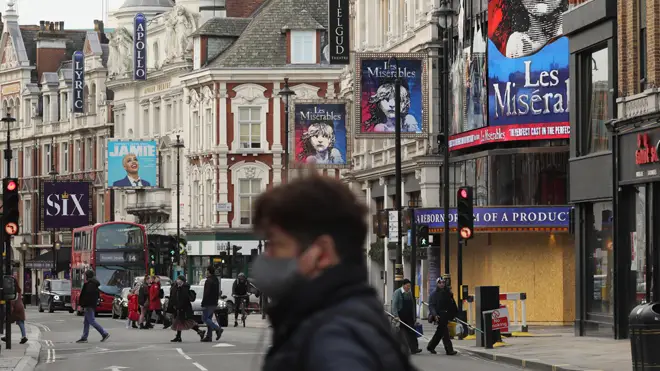
Ali Miraj 12pm - 3pm
18 December 2020, 07:59 | Updated: 19 December 2020, 14:51

Ministers are reportedly considering the option of putting millions of people into a tougher 'Tier 4' of coronavirus restrictions after the Christmas break.
Under Tier 4, people would be told to stay at home with commuting banned, schools would stay shut for an extra week, and non-essential shops would be shut.
After 38 million people were placed into Tier 3 in England yesterday, a Whitehall official told the Times: 'There is a case for going further than Tier 3 and it is getting stronger.
Read more: London and SE 'to enter Tier 4 of Covid rules and told to stay home over Christmas'
'[That could mean] closure of non-essential retail, stay-at-home orders. That would have to be actively considered in conversation with the local authority.'

More areas of England plunged into Tier 3 restrictions
The Scientific Advisory Group for Emergencies (SAGE) has previously endorsed 'Tier 4' as a way of controlling the spread of the virus.
A statement from SAGE in November read: "There is a great deal of uncertainty about the effect of tiers, particularly Tier 3.
"Test and trace, including mass testing, is most effective when prevalence is low.
"Even the most effective test and trace system will have little impact when caseloads are high.
"Given that the impact of tiers will vary depending on the characteristics of different areas, a “Tier 4” needs to be considered for those parts of the country where Tier 3 is not able to shrink the epidemic.
"This is particularly important in the run-up to the winter festive period if relaxation of measures is under consideration.
"Keeping incidence flat or decreasing between now and then is crucial."
READ MORE: Nursing chief warns of 'tsunami' of covid cases over Christmas
Relaxing coronavirus restrictions over Christmas could lead to an "unrelenting tsunami" of cases, a nursing chief warned today, as swathes of southern and eastern England prepare to enter the top tier of Covid-19 restrictions.
More than two-thirds of the population will be living under Tier 3 measures from Saturday as the Government tries to stem rising infections which have led to fresh concerns about households mixing over the festive period.
Dame Donna Kinnair, chief executive and general secretary of the Royal College of Nursing, said ministers should give "fresh and more detailed" advice to the public with a week to go until Christmas.
"After a difficult year, it is everybody's instinct to want to be together and see loved ones - especially those who live far apart or feel isolated. But what is at stake is coming into sharp focus," she said.
"Travelling and family visits associated with this time of year will undoubtedly lead to more cases, more pressure on NHS and care services, and more deaths. By turning the second and third waves into an unrelenting tsunami, we would begin 2021 in the worst possible way."
She said nurses would not enjoy Christmas "knowing what awaits them in January" and called on the Government to be "clearer about the risks - not just the rules", warning: "This virus isn't taking Christmas off and nor should we."
Up to three households are able to mix between December 23 and 27, while travel to and from Northern Ireland is also permitted on December 22 and 28.
In a bid to control the spread of coronavirus, Health Secretary Matt Hancock announced on Thursday that Bedfordshire, Buckinghamshire, Berkshire, Peterborough, Hertfordshire, Surrey (with the exception of Waverley), Hastings and Rother (on the Kent border of East Sussex), and Portsmouth, Gosport and Havant in Hampshire will all move into Tier 3.
Under the top level of restrictions, pubs and restaurants can only offer takeaway or delivery services and indoor entertainment venues are shut.
The changes mean a total of 38 million people will be living in Tier 3 from Saturday - 68% of the population of England.